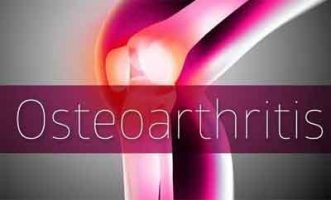- Home
- Editorial
- News
- Practice Guidelines
- Anesthesiology Guidelines
- Cancer Guidelines
- Cardiac Sciences Guidelines
- Critical Care Guidelines
- Dentistry Guidelines
- Dermatology Guidelines
- Diabetes and Endo Guidelines
- Diagnostics Guidelines
- ENT Guidelines
- Featured Practice Guidelines
- Gastroenterology Guidelines
- Geriatrics Guidelines
- Medicine Guidelines
- Nephrology Guidelines
- Neurosciences Guidelines
- Obs and Gynae Guidelines
- Ophthalmology Guidelines
- Orthopaedics Guidelines
- Paediatrics Guidelines
- Psychiatry Guidelines
- Pulmonology Guidelines
- Radiology Guidelines
- Surgery Guidelines
- Urology Guidelines
Naproxen ranked as most effective individual knee OA treatment

The NSAID, Naproxen, was ranked the most effective in the treatment of knee Osteoarthritis for improving both pain and function at a relatively safe and low-cost, according to the Journal of the American Academy of Orthopaedic Surgeons.An estimated 45 percent of people are at risk of developing knee osteoarthritis (OA) in their lifetime.
David Jevsevar et al. conducted a research to determine clinically relevant effectiveness of nonsteroidal anti-inflammatory drugs, acetaminophen, intra-articular (IA) corticosteroids, IA platelet-rich plasma, and IA hyaluronic acid compared with each other as well as with oral and IA placebos to find relative effectiveness of various nonsurgical treatments for knee OA.
This is the first comprehensive mixed-comparison analysis comparing best-evidence scientific research and excluding lower quality studies that can bias the outcomes," said orthopaedic surgeon David Jevsevar,. "Using a statistical ranking technique, we worked to provide evidence regarding which of the most common NSAIDs are most likely to decrease pain and improve function, and we attempted to fill in the gaps in evidence for more inconclusive treatments such as HA, PRP, and corticosteroids."
The study analyzed 53 randomized controlled trials that examined knee OA treatments for at least 28 days and included a minimum of 30 participants per study group. Knee OA treatments were ranked on a scale of1 to 5, with 1 being the most effective and 5 being the least effective.
The study found that
- For pain reduction, cortisone injections provided the greatest short-term (4 to 6 weeks) pain relief, followed by ibuprofen, PRP injections, naproxen, and celecoxib.
- Naproxen ranked the highest for probability for improving function, followed by diclofenac, celecoxib, ibuprofen, and PRP injections.
- Naproxen was ranked the most effective individual knee OA treatment for improving both pain and function followed by cortisone injections, PRP injections, ibuprofen and celecoxib.
- HA injections did not achieve a rank in the top five treatments for pain, function, or combined pain and function. An analysis of 12 articles also found that results with HA are not significantly different from those with IA placebo for treatment of knee OA.
The rsearchers believe that the best available evidence was analyzed, but there were instances of inconsistency in the design and duration among articles, potentially affecting uniform data inclusion.
The study concluded that cumulative probabilities showed naproxen to be the most effective individual treatment and when combined with IA corticosteroids, has the most potential to improve pain and function.
The research was published in the Journal of the American Academy of Orthopaedic Surgeons.
For more reference log on to: http://10.5435/JAAOS-D-17-00318

Disclaimer: This site is primarily intended for healthcare professionals. Any content/information on this website does not replace the advice of medical and/or health professionals and should not be construed as medical/diagnostic advice/endorsement or prescription. Use of this site is subject to our terms of use, privacy policy, advertisement policy. © 2020 Minerva Medical Treatment Pvt Ltd